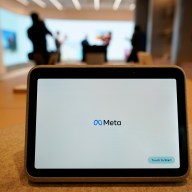WASHINGTON (Reuters) – The U.S. Federal Reserve should consider using an economic model in which private credit markets play an important role in reallocating uneven income across lifetimes so that people can consume smoothly, St. Louis Fed President James Bullard said on Friday.
“Theories leaning in this direction may provide a promising avenue for thinking about policymaker incentives for maintaining credibility in a low-inflation world,” Bullard said in prepared remarks to the Shadow Open Market Committee economics conference in New York, which was honoring the life of late economist Marvin Goodfriend.
Bullard did not mention his outlook for the U.S. economy, monetary policy or the coronavirus outbreak in his speech.
The St. Louis Fed chief co-authored an academic paper last year outlining such an approach, formally known as non-state contingent nominal contracting (NSCNC), which is close to nominal GDP targeting because it calls for countercyclical price-level adjustments.
“The essence of optimal monetary policy in an economy with an important NSCNC friction is fairly straightforward. Households have to sign ex ante contracts in order to borrow and lend, and in simple versions they will agree on a nominal interest rate that is equal to the expected rate of nominal GDP growth,” Bullard said.
The Fed is in the final stages of conducting a review of its policy framework, looking at whether its existing strategy and tools are fit for purpose, including its 2% inflation goal.
The review, due for completion in the summer, has been given added urgency by the global outbreak of the new coronavirus, with the number of cases in the United States continuing to rise.
The Fed cut interest rates by half a percentage point on Tuesday in an emergency move designed to protect the U.S. economy from the potential impact of the flu-like illness.
The deepening fear that the virus could cause a global economic slowdown has caused stocks around the world to tumble. Investors are already predicting another U.S. rate cut later this month.
(Reporting by Lindsay Dunsmuir; Editing by Paul Simao)















